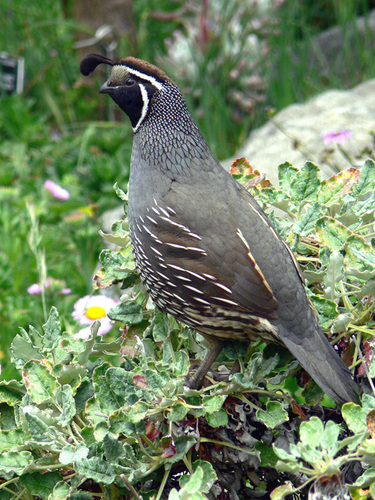Long Range Fish Report
From Sportfishing
From Sportfishing
Fish Report for 3-3-2016

Don’t Let Your Fowl Turn Foul
3-3-2016
Carrie Wilson
Question: I hope you can answer my question about cleaning birds. My friends and I went quail hunting a few weeks ago, and it took us 45 minutes to hike into the area where we hunt. We flushed a large covey of birds, shot two and then continued to hunt singles for several hours. We picked up a few more birds for the day and hiked back out. By the time I was able to clean my birds, several hours had passed. The birds had been in my vest. Are they still safe to eat after being shot several hours before and then not cleaned right away? If not, how do you clean a bird and continue to hunt when you are so far from the truck and without any ice chests? My friend says you can also freeze the birds before cleaning them, then thaw and clean them all at once. Is this safe? Can I do this with all birds such as pheasants, too? (Jim L., Santa Maria)
Answer: As I’m sure you are aware, the most important thing to do with game is to keep it clean and dry, and to cool it down ASAP. I can’t promise the birds in your vest are still safe to eat. However, most of us spend several hours in a day out hunting and by the time we get our birds home, many hours have passed. If you refrigerate them as soon as you return from the field, and it’s the same day you are hunting, it is likely they will be fine and ok to consume. However, if they are left in the back of a truck in the heat, then you may be taking a chance. Small birds like quail will cool on their own (somewhat) much faster than a large goose will.
Since ideal handling is not always an option, preparing for the worst situation is always the best plan. Hunters should keep an ice chest with cold packs or sealed bags of ice handy to quickly cool down their game birds without adding moisture. Moisture and warm temperatures create the perfect environment for bacteria to grow.
If you are concerned about the birds spoiling, you can always gut the birds immediately upon taking possession of them. This will allow them to cool quickly. Remember that you are responsible for proper game care, and letting the birds go to waste is a violation. The California Department of Fish and Wildlife (CDFW) advises that you do everything you can to cool your game quickly so you can enjoy your harvest.
Answer: As I’m sure you are aware, the most important thing to do with game is to keep it clean and dry, and to cool it down ASAP. I can’t promise the birds in your vest are still safe to eat. However, most of us spend several hours in a day out hunting and by the time we get our birds home, many hours have passed. If you refrigerate them as soon as you return from the field, and it’s the same day you are hunting, it is likely they will be fine and ok to consume. However, if they are left in the back of a truck in the heat, then you may be taking a chance. Small birds like quail will cool on their own (somewhat) much faster than a large goose will.
Since ideal handling is not always an option, preparing for the worst situation is always the best plan. Hunters should keep an ice chest with cold packs or sealed bags of ice handy to quickly cool down their game birds without adding moisture. Moisture and warm temperatures create the perfect environment for bacteria to grow.
If you are concerned about the birds spoiling, you can always gut the birds immediately upon taking possession of them. This will allow them to cool quickly. Remember that you are responsible for proper game care, and letting the birds go to waste is a violation. The California Department of Fish and Wildlife (CDFW) advises that you do everything you can to cool your game quickly so you can enjoy your harvest.
Carrie Wilson is a marine environmental scientist with the California Department of Fish and Wildlife. While she cannot personally answer everyone’s questions, she will select a few to answer each week in this column. Please contact her at CalOutdoors@wildlife.ca.gov.
< Previous Report Next Report >
More Reports
California Department of Fish & Wildlife Reports
for Thursday, March 3rd, 2016• Can dead farm-raised trout be used for bait in lakes and streams?
• Number of hooks allowed for sand dabs vs. halibut?
California Department of Fish & Wildlife Reports
for Thursday, February 25th, 2016• Hunting chipmunks
• Shark fin prohibition
• Hunting on rental property

LongRangeSportfishing.net © 2024. All Rights Reserved.
Website Hosting and Design provided by TECK.net
Website Hosting and Design provided by TECK.net